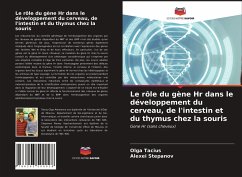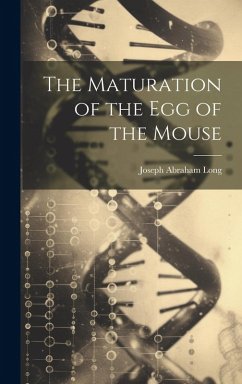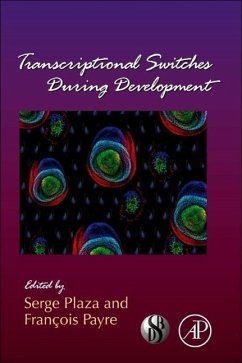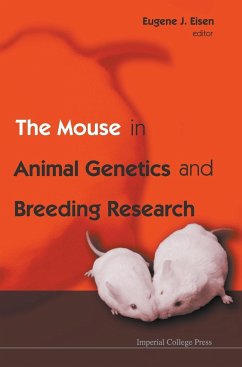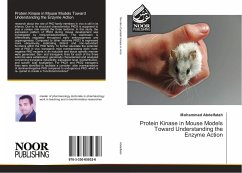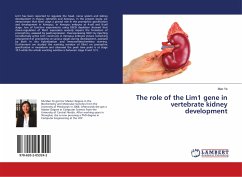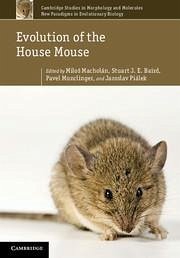
The role of the Hr gene in brain, gut and thymus development in the mouse
Gene Hr (Hairless)
Versandkostenfrei!
Versandfertig in 6-10 Tagen
32,99 €
inkl. MwSt.

PAYBACK Punkte
16 °P sammeln!
The mechanisms of genetic control of organ embryogenesis by WNT- and BMP-dependent gene networks have been studied only in general terms. However, the expression of many genes also involved in organogenesis correlates with the expression of genes of Wnt and Bmp families and their effectors. In particular, one of such genes is Hr (Hairless) gene. Mutation in the Hr gene in mice leads to the development of a characteristic phenotype expressed in complete baldness by three weeks of age. Also, adult mice carrying the mutant allele of the Hr gene in the homozygote show anatomical defects in the thy...
The mechanisms of genetic control of organ embryogenesis by WNT- and BMP-dependent gene networks have been studied only in general terms. However, the expression of many genes also involved in organogenesis correlates with the expression of genes of Wnt and Bmp families and their effectors. In particular, one of such genes is Hr (Hairless) gene. Mutation in the Hr gene in mice leads to the development of a characteristic phenotype expressed in complete baldness by three weeks of age. Also, adult mice carrying the mutant allele of the Hr gene in the homozygote show anatomical defects in the thymus, inner ear, brain and intestine, organs whose tissues express the normal Hr gene in heterozygotes and wild-type animals. The formation of these organs occurs during embryogenesis and is controlled by poorly understood molecular mechanisms. Inductive interactions between epithelial and mesenchymal components of embryonic setting play an important role in the regulation of their development.The aim of this work is to find out whether the normal allele of Hr gene affects the functioning of WNT- and BMP-dependent gene networks in the embryogenesis of epithelio-mesenchymal organs in mouse.




